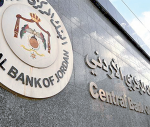You are here
A new chance for Greece
Sep 12,2015 - Last updated at Sep 12,2015
On September 20, Greek voters will go to the polls — yet again — in a snap election called by Prime Minister Alexis Tsipras.
The early poll was no surprise: Almost a third of Tsipras’ colleagues in his leftist Syriza Party refused to endorse the bailout he had negotiated with the country’s creditors.
In a parliamentary vote on the deal last month, Tsipras, in office since January, was forced to rely on support from the opposition.
So was the international community’s sigh of relief after the latest financial rescue — additional money from Greece’s creditors in exchange for structural reforms — premature?
Will Greece, the twenty-first century’s “sick man of Europe”, persist in refusing to reform?
The underlying issue is whether Europe’s monetary union needs greater integration to manage crises such as Greece’s, or whether it can maintain the current approach, founded on national responsibility and sanctions for those who break the rules.
Germany’s finance minister, Wolfgang Schäuble, has suggested that those sanctions should include expulsion from the eurozone — something that was never envisaged in the European Union’s 1992 Maastricht Treaty.
Nor, of course, was it ever envisaged that Greece would face its current economic trauma.
Admittedly, the country’s economic performance after the oil shock of the early 1970s was poor, marked by slow growth, high inflation and unemployment, huge fiscal deficits, increasing debt, a declining currency and inadequate infrastructure.
Indeed, until the mid-1990s, the government’s lack of macroeconomic discipline and its tendency to succumb to populist demands and vested interests accounted for much of the country’s economic weakness.
But entering Europe’s economic and monetary union was meant to induce the political system to pursue longer-term goals such as productivity growth and enhanced competitiveness.
At first, events played out according to plan. During the period of Greece’s accession to the eurozone, from 1994 to 2001, its economy stabilised. Both inflation and the fiscal deficit fell rapidly; businesses and consumers became more confident; investment picked up; and the government put in place an ambitious package of liberalising reforms. Annual GDP growth jumped from -1.6 per cent in 1993 to over 4 per cent in 1997 — and stayed around this level until 2007.
Hubris was perhaps understandable; but as every Greek schoolchild knows, hubris leads to nemesis.
Excessive borrowing created a credit bubble, which burst when the global financial crisis erupted in 2007-2008, leading to the current social and economic catastrophe.
A fashionable view is that Greece did not fulfil the eurozone’s entry criteria and so falsified statistics in order to secure membership. This is nonsense.
Greece’s budget deficit for 1999 — the year when its application was assessed — was indeed shown several years later to have exceeded marginally the Maastricht-imposed ceiling of 3 per cent of GDP. But this calculation was the result of a politically motivated statistical revision, initiated by the government that won the 2004 elections.
The political ruse was to change retroactively the accounting methods for defence spending. Greece had been following the standard practice of registering expenditures when military purchases were actually delivered.
But an alternative accounting method could also be used, registering expenditures when payments — in accordance with front-loaded schedules — were actually made.
Choosing this alternative meant the transfer of substantial amounts of spending from the date of expected deliveries to the time when orders were placed.
The obvious arithmetical result was to inflate past deficits — including for the year 1999.
Accounting foibles aside, Greece’s real error was to forget — once it had become the 12th member of the eurozone on January 1, 2001, — the imperative to modernise the state through liberalisation and privatisation; instead, it fell back into its old bad ways.
Vested interests prevailed: business groups attempted to capture specific markets; and public-sector workers fought to preserve their privileges.
Taxes were evaded on a massive scale, and the welfare state was characterised by endemic waste. In short, bad governance and weak institutions are to blame for the 2010 debt crash.
Previous bailout programmes failed because they entailed excessive austerity.
There was no counter-balancing move to increase demand by publicly funding infrastructure investment; domestic reforms were inadequate; and the creditors offered no substantial debt restructuring or debt forgiveness. So why should last month’s deal succeed?
Optimists will note that the underlying fiscal situation in Greece is healthier. Moreover, debt relief is being considered; the euro and the price of oil are both — helpfully — weaker; and, despite China’s economic slowdown, international economic developments remain broadly favourable.
On the other hand, Greek society is exhausted by the huge sacrifices it has been forced to accept. The civil service is weakened and dispirited after painful pay cuts.
The political system has been strained by the rise of populism and extremist forces on both the left and the right — and now, as the coming election highlights, there is the risk of renewed government instability.
Greece’s problems are not new. Other countries have gone through difficult periods and recovered (Germany, our leading creditor, is a good example).
Greece’s location, together with existing strengths such as tourism, shipping, renewable energy resources, and a pool of scientists at home and abroad, provides real potential for the country to grow. But to realise that potential requires both stability and genuine reform.
That means that after the election (which is unlikely to produce a single political force capable of undertaking this task), Greece’s centre-left and centre-right parties must learn to collaborate in the cause of effective governance.
Just going from one crisis to the next will ruin the economy for decades to come — and will exhaust the patience of even the most sympathetic of Greece’s partners.
The writer, Greece’s economy and finance minister from 1994 to 2001, is president of the Centre for Progressive Policy Research, an independent think tank. ©Project Syndicate, 2015. www.project-syndicate.org











